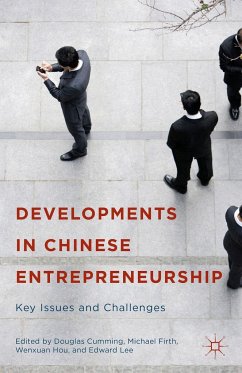
International Entrepreneurship
Theoretical Foundations and Practices; Second Edition
Versandkostenfrei!
Versandfertig in 6-10 Tagen
76,99 €
inkl. MwSt.
Weitere Ausgaben:

PAYBACK Punkte
38 °P sammeln!
Over the past two decades international entrepreneurship has become a key issue in international business studies. This second edition of International Entrepreneurship examines this key emerging issue from its foundations; entrepreneurship, strategic management and international business studies. The book proposes an integrated interpretive framework in which to place international entrepreneurship, examining both theoretical and practical interests. It asserts that firms faced by global competitive pressures need to develop proactive and innovative responses to cope with the uncertainties of...
Over the past two decades international entrepreneurship has become a key issue in international business studies. This second edition of International Entrepreneurship examines this key emerging issue from its foundations; entrepreneurship, strategic management and international business studies. The book proposes an integrated interpretive framework in which to place international entrepreneurship, examining both theoretical and practical interests. It asserts that firms faced by global competitive pressures need to develop proactive and innovative responses to cope with the uncertainties of international markets and instead capture the opportunities. This book presents a common framework to complement the growing contributions to this topical and lively subject.












